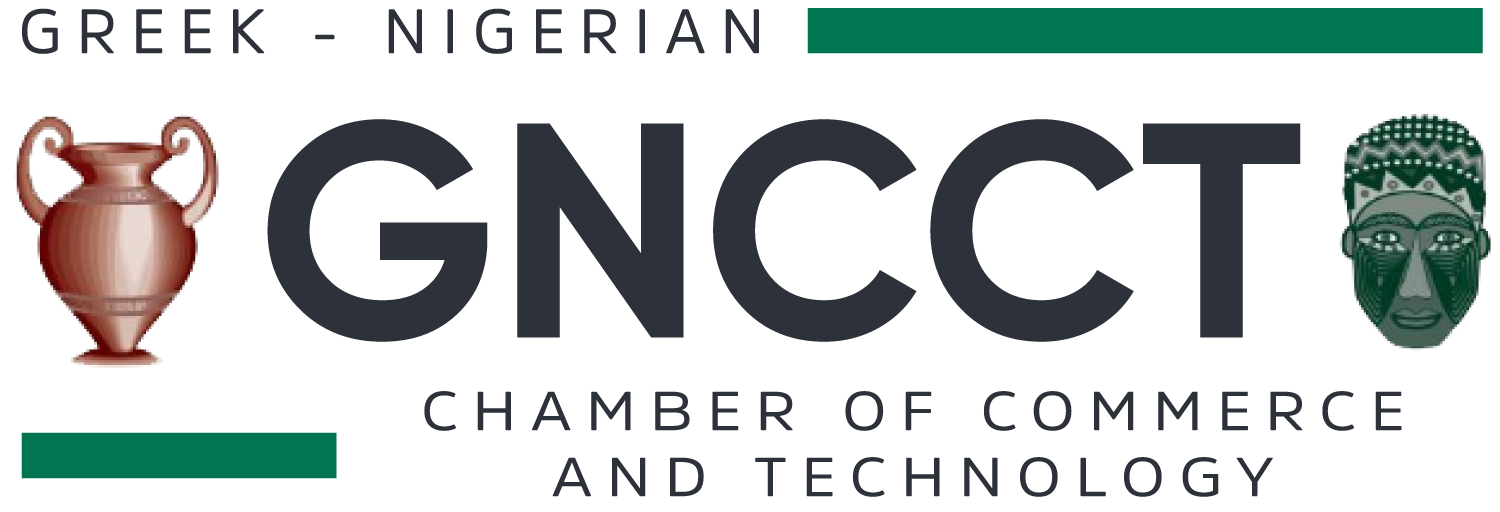INTRODUCING NIGERIA
Nigeria is a dynamic and complex country with a rich cultural heritage and significant economic potential.
Is located in West Africa and is bordered by Benin to the west, Niger to the north, Chad to the northeast and Cameroon to the east.
It also has a southern coastline along the gulf og Guinea in the Atlantic Ocea.
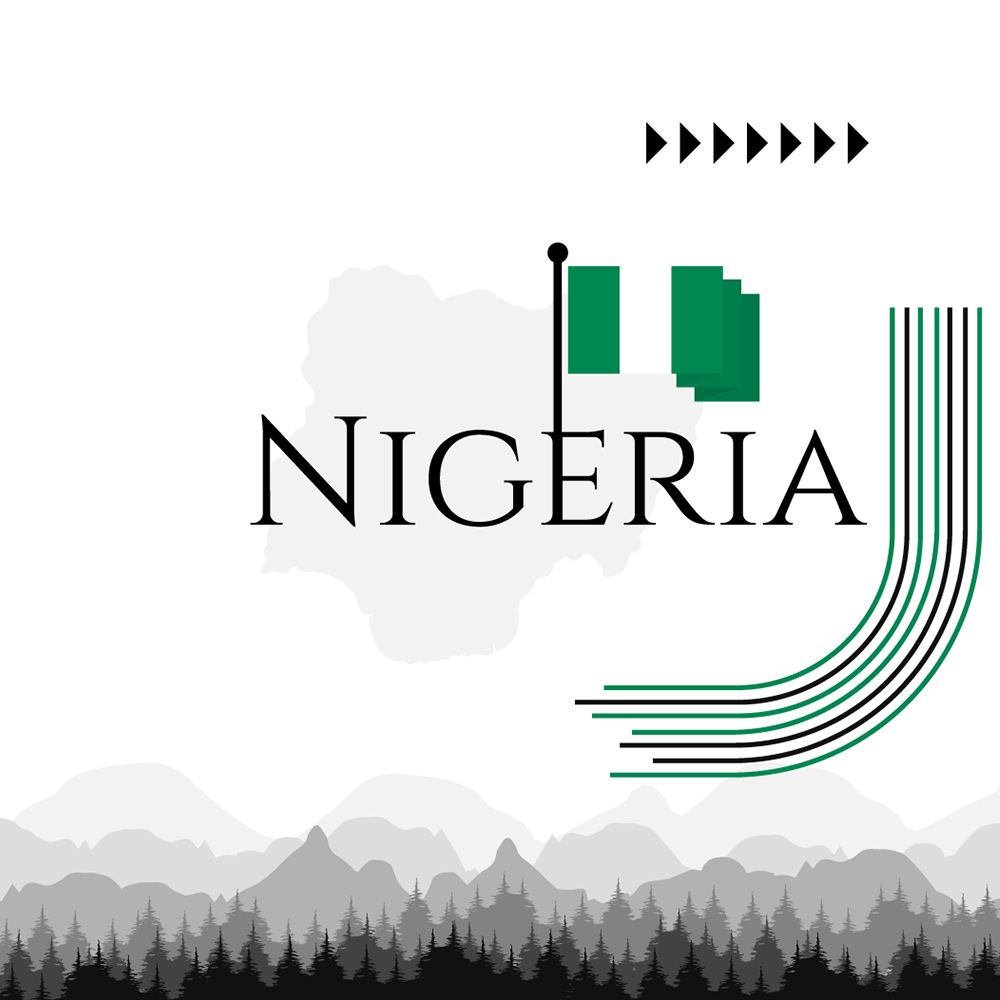
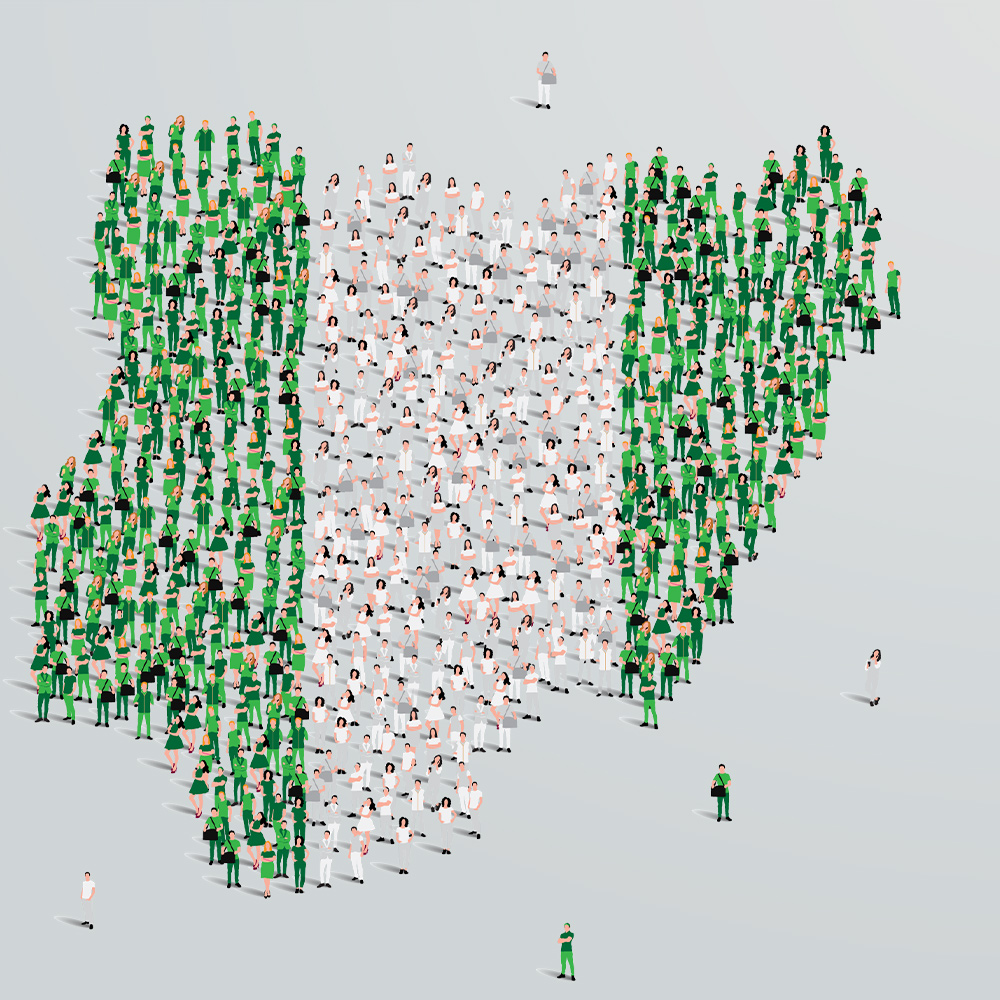
POPULATION
As the most populous country in Africa, Nigeria has an estimated population of over 200 million. This substantial population is diverse with more than 250 ethnic groups, each with its unique customs and languages. The three major ethnic groups are the Hausa-Fulani in the north, The Yoruba in the southwest and the Igbo in the southwest as well.
The country is blessed with remarkable natural beauty. From the vast savannahs of the north to the lush rainforests in the south, Nigeria is a aland of diverse landscapes. Worth mentioning, Niger river which is the third-longest river in Africa and the mesmerizing Zuma Rock, often referred to as “Gateway to Abuja”, the capital city.
MAJOR CITIES
Some of the major cities in Nigeria include:
Lagos: The largest city and economic hub. Renowned for its vibrant markets, lively nightlife and stunning beaches.
Abuja: The capital city, known for its modern architecture, including the impressive Aso Rock which houses the presidential complex.
Kano: A major city in the north
Port Harcourt: Known for its oil industry.
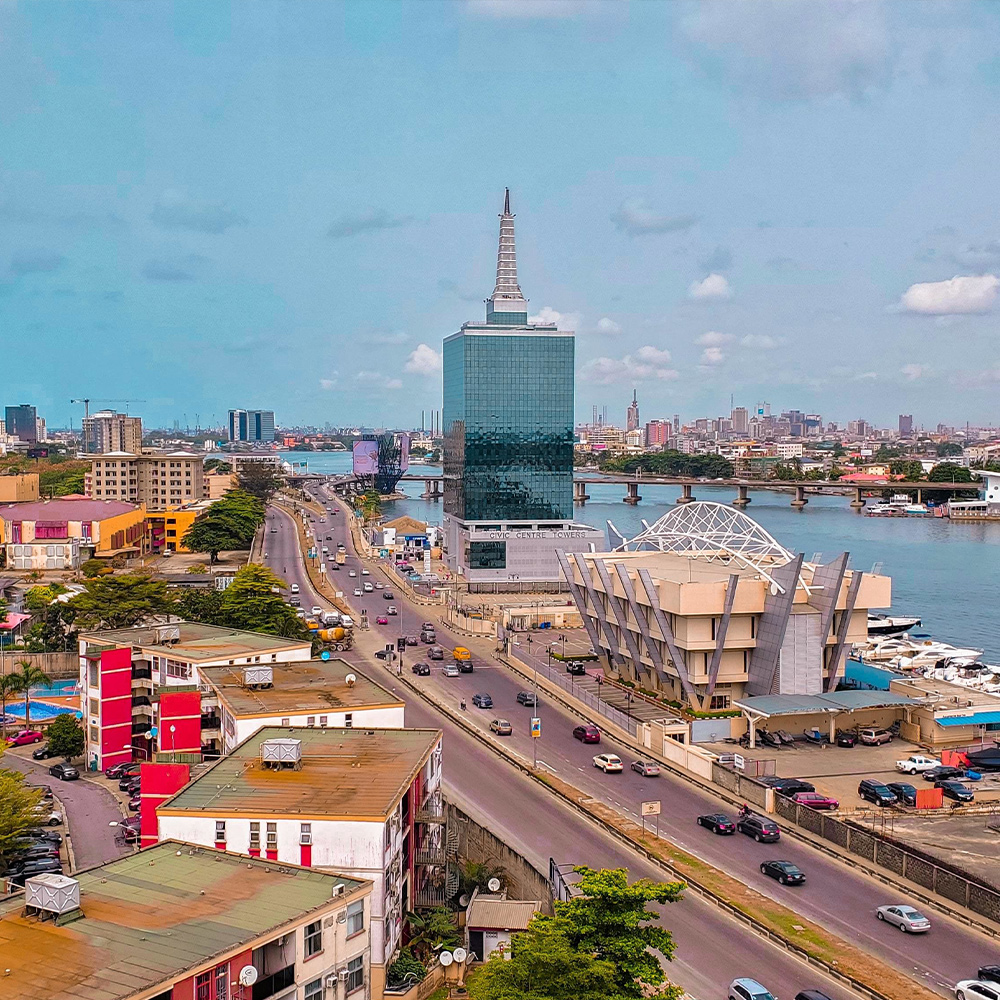

ECONOMY
Nigeria has one of the largest economies in Africa driven by several key sectors:
- Oil and Gas: Nigeria is the largest oil producer in Africa
- Agriculture: Produces crops such as cassava, yams and cocoa.
- Services: Includng telecommunications and banking.
LANGUAGES & CULTURE
The official language of Nigeria is English which is used for government and educational purposes. However, numerous indigenous languages are widely spoken, such as Hausa, Yoruba and Igbo.
Nigeria is rich in cultural heritage with a variety of traditional festivals, music and arts. Nigerian music, particularly genres like Afrobeat, has gained international recognition. The country is also known for its vibrant film industry, often referred to as Nollywood.


EDUCATION
Nigeria has a developing systems with many universities, polytechnics and colleges. Some of the most prominent institutions include:
CULTURAL FESTIVALS
EYO Festival takes place in Lagos and is known as the “Adamu Orisa Play”. Participants adorned in white robes and masks parade through the streets to honor the ancestors and pay homage to the reigning Oba (king) of Lagos.
Durbar Festival, celebrated in various northern Nigerian states, notably Kano, Katsina and Zatia, is a grand display of horsemanship and pageantry.
Osun-Osogbo Festival, held annually in Osogbo, Osun State, is a celebration of the river goddess Osun.
New Yam Festival is celebrated across various Igbo communities. It is a thanksgiving ceremony to honor the harvest season and give thanks to the deities for a bountiful harvest.


Greek companies that have made their mark in Nigeria
- Alumil Nigeria Limited, a Greek company specializing in aluminum systems and architectural solutions.
- Intrakat Nigeria Limited, a Greek construction company that has successfully expanded its operations to Nigeria. They specialize in various constructions projects including buildings, energy and telecommunications.
- Karamanis Brothers Nigeria Limited, Nigerian company with Greek origin is involved in the importation and distribution of food products including olive oil, feta cheese and other mediterranean delicacies.
- Flour Mills of Nigeria, is one of the largest and most diverse food and agro-allied companies in Nigeria. It operates in flour milling, pasta production and agricultural development.
- G.Leventis Plc, it operated in a range of sectors including food, beverages, real estate and vehicle distribution.
- Nigerian Bottling Company, a subsidiary of Coca-Cola which is partially Greek-owned, is one of the leading bottlers of non-alcoholic beverages in Nigeria
Small/middle sized companies
Often make a significant impact in their niches providing specialized services or products for specific market needs. Here are some small /medium sized companies that have made their way to Nigeria:
- Elysian Foods Nigeria, focuses on importing and distributing authentic Greek food products such as olives, feta cheese, and olive oil in markets and locals who appreciate Mediterranean cuisine.
- Parthenon Imports, specialized in the importation of Greek wines and spirits, catering to high-end restaurants, hotels and individuals in Nigeria.
- Triaina Maritime Security, provides high quality Maritime Security Solutions to the shipping industry.

A major focus of the present administration is to emulate investor friendly policies that will revitalise social-economic development in the country and strengthen its infrastructure towards the goal of making Nigeria one of the world’s top economies.
The Nigerian government also recognizes the role of the private sector as the engine room to fast-track Nigeria’s growth and development hence it has taken appropriate measures to remove all impediments on the path of private sector investments in the country.
Doing business in Nigeria is no longer a daunting experience if one follows the various channels set up by the government to facilitate business and investment.
The first point of call for any company considering doing business in Nigeria should be the Nigerian Investment Promotion Council (NIPC).
The NIPC is a division of the Federal Ministry of Industries and was established to promote, co-ordinate and monitor investments in the country. The NIPC has One Stop Investment Centres in almost every Nigerian city and they are empowered to provide fast track business entry services to both domestic and foreign investors, devoid of red tape.
Please visit the NIPC Website for more information
Please also find useful information about Nigeria in the following documents
| Coordinate | 10º00´ N 8º00´ E |
| Land Area | 923.768 sq. km. |
| Population | 156 million (approximate) |
| Population Growth Rate | 2.0% |
| Federal Capital | Abuja |
| Central Bank | Central Bank of Nigeria |
| GDP | US$ 273.042 billion (2011 estimate) |
| Real GDP Growth Rate | 7.2% (2011) |
| Per capita GDP | $2,300 (2009) |
| Main Cities | Lagos, Kano, Port Harcourt, Benin City, Enugu, Warri, Zaria, Ibadan, Katsina, Jos, Calabar |
| Main Sea Ports | Lagos, Port Harcourt, Onne, Calabar |
| International Airports | Lagos, Abuja, Kano, Port Harcourt |
| Literacy Total population | 68% |
| Legal System | Based on English common law, Islamic law (in 12 northern states) |
| Language | English (Official), Hausa, Igbo, Yoruba, Fulani, Kanuri, others. |
| Climate | Equatorial in the south, tropical in the centre and arid in the north |
| Time | GMT +1 |
| Fiscal Year | Calendar year |
| Country Code | 00234 |
| Currency | (N) (NGN) |
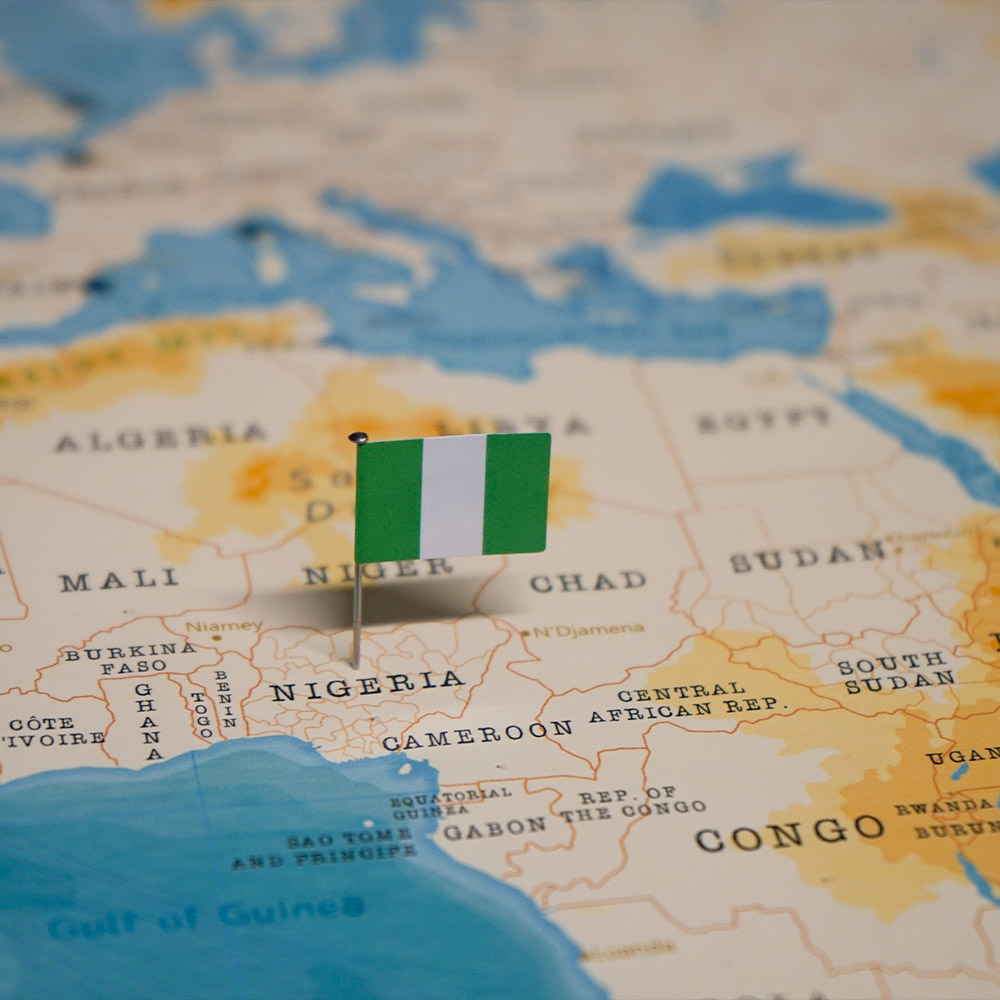
Why Invest in Nigeria
Investing in Nigeria can be a wise choice for those seeking opportunities in Africa. Taking into consideration the following compelling reasons with the right approach can be a rewarding venture:
Abundant resources: Nigeria is blessed with vast reserves of oil, natural gas, solid minerals, and agricultural resources.
Large and Growing Market: With over 220 million people, Nigeria boasts a sizable domestic market. This presents immense potential for business across various sectors, including consumer goods, telecommunications, financial services and real estate. As the middle class continues to expand, the demand for goods and services is expected to rise creating opportunities for investors.
Strategic Location: Nigeria’s location in West Africa provides a gateway to the vast regional market of the Economic Community of West African Stated which comprises 15 countries. By investing in Nigeria, businesses can tap into a broader market and benefit from regional integration efforts.
Investment Incentives: The Nigerian government has implemented various investment incentives to attract both local and foreign investors. These include tax holidays, capital repatriation, and import duty exemptions for specific sectors. These measurements aim to create a more favorable investment climate and encourage economic growth.
Infrastructure Development: The Nigerian Government is committed to improving infrastructure across the country. Significant investments are being made in areas such as transportation, power generation and telecommunications. These developments create opportunities for private sector participation and investment.

